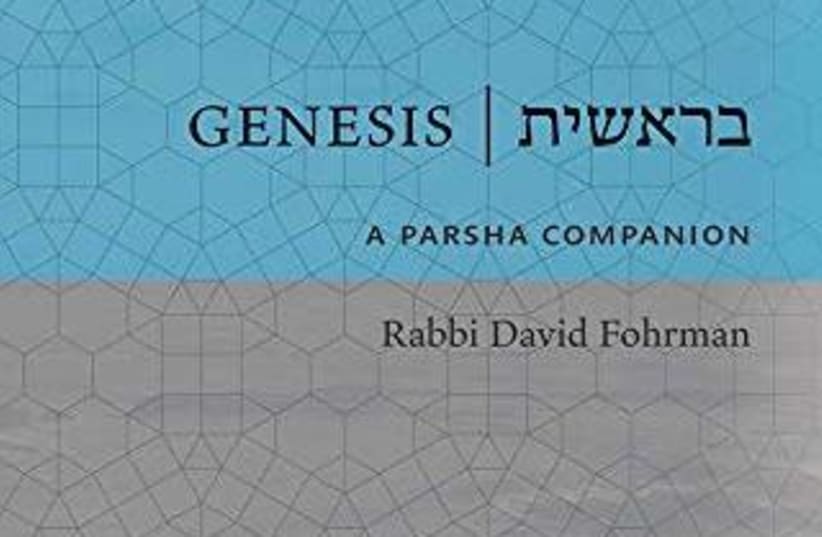Rabbi David Fohrman is the principal educator at Aleph Beta Academy. His distinctive approach to Bible study is characterized by identifying previously undetected patterns in the text that answer new and intriguing questions.
The publisher makes this claim, “Underneath Rabbi Fohrman’s approach to biblical text lies a simple conviction: Inasmuch as reading a book is like having a conversation with its author, reading the Bible is like having a conversation with our Creator.” Fohrman’s language is often disarmingly informal. He writes sentences such as, “[T]here’s something puzzling about that declaration, and I want to discuss it with you.” In his introduction to the Torah portion of Chayei Sarah, he writes lovingly about his grandmother, whose zest for life remained even through her last days. Or he introduces the Torah portion of Vayeishev with this question: “Was the sale of Joseph the greatest crime that... never happened?” These examples are classic Fohrman style. But don’t be deceived. His opening approach is friendly and accessible, however, he quickly transitions to more substantive content that requires the reader to really think.
He dissects patterns, illustrating consecutive verses using different colors, using bold text and even colored boxes to make his points clearer. Truthfully, his Aleph Beta Academy animated videos employ more sophisticated tools, such as movement, than the printed word can accommodate to illustrate his points. Even so, the design of this book is clearly deliberate and uses color and print to support his reading of the text.
His style gently carries the reader through. For example, he wrote three interconnected essays that cover the Torah portions of Toldot, Vayeitzei and Vayishlach which all look deeply into the increasingly complex aspects of the “story of the deception of Isaac and its aftermath.” He opens the first essay with a focus on Rebecca in a chapter called “If You Were Rebecca’s Lawyer.” He uses a bit of role play, some classical Torah sources (which he mostly leaves for the footnotes) and a bit of biblical sleuthing to uncover Rebecca’s motivation, and her relative guilt or innocence, in engineering the whole deception of Isaac.
The next essay focuses on what God thinks of Jacob’s role in the deception, and the third interconnected essay builds a bridge between what happened between Jacob and Esau and the central characters in the Purim story.
Although Fohrman uses English names exclusively for biblical characters and he patiently explains relevant nuances in the Hebrew text, he does expect his readers to have nodding familiarity with the stories themselves before he carries them to a deeper level. In fact, his work might be more or less unintelligible to someone who doesn’t know at least the basic narrative of the biblical stories.
This is part of the reason he has been so successful teaching Jews and Christians simultaneously, even if that wasn’t his original intent. His work appeals to Bible-believing Christians as well because he takes the Bible stories they already know and cracks them open.
He accomplishes this through employing patterns and illuminating the Hebrew text. He also forges novel connections between stories found in different parts of the Bible. And he manages to do all this with a light touch, with humor and with his full humanity on display. In Genesis: A Parsha Companion, Fohrman is anything but a detached lecturer. He clearly wants to engage his readers and have them see what he sees. In writing, as in his public lectures, he is enormously personable.
Fohrman is just a masterful Torah teacher and Genesis: A Parsha Companion is a solid addition to his existing body of work. He is also the author of The Beast that Crouches at the Door, about the Adam and Eve stories in Genesis, and The Queen You Thought You Knew, about Queen Esther and the Purim holiday.
Genesis: A Parsha Companion is expected to be followed by four more volumes on the rest of the Five Books of Moses.
The writer is editor of Ten from the Nations: Torah Awakening among Non-Jews, as well as a book reviewer, blogger and adult educator specializing in Jewish content.
GENESIS: A PARSHA COMPANION
By Rabbi David Fohrman
Maggid
240 pages; $29.95
